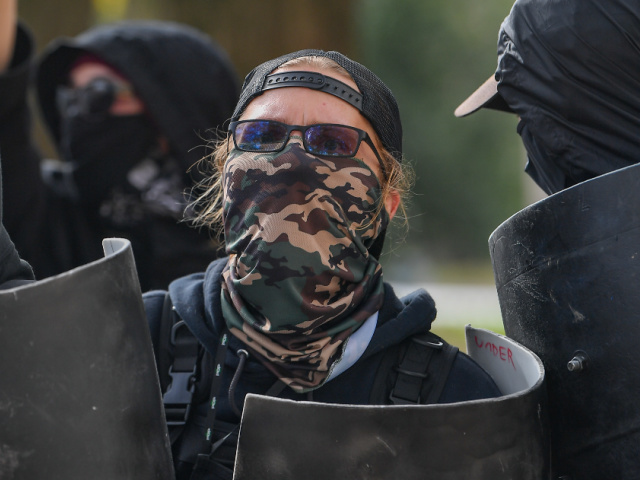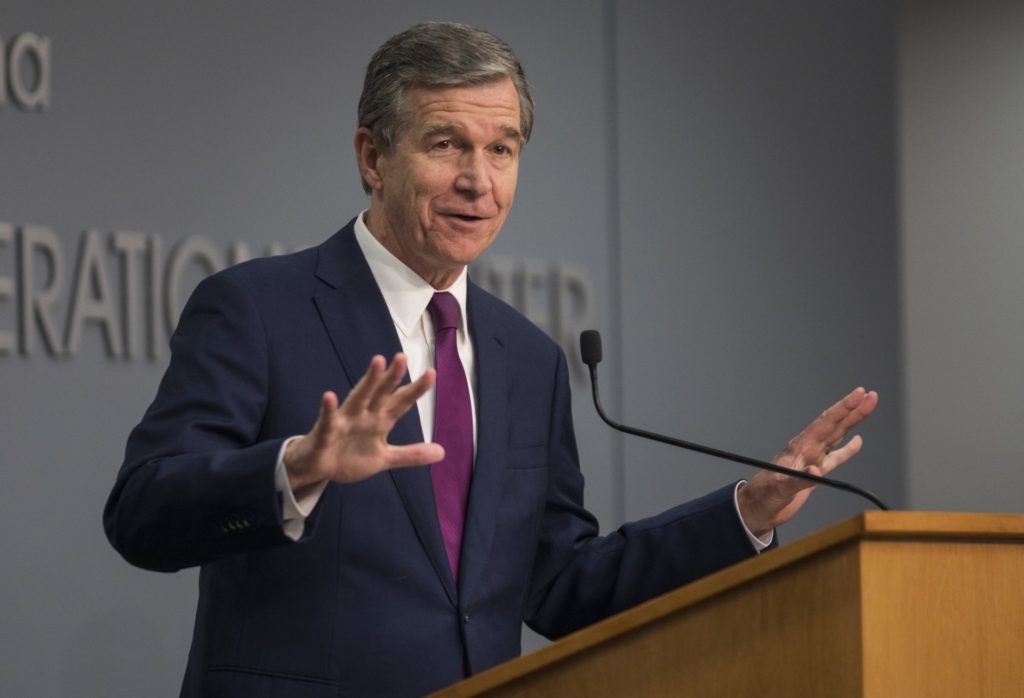A North Carolina bill, designed to increase penalties for rioting, will become law without the signature of Gov. Roy Cooper (D).
House Bill 40, a piece of legislation designed to create new penalties for inciting or participating in a riot, was presented to Cooper on March 10. Cooper explained in a statement he would neither sign nor veto the bill, having already vetoed similar legislation the previous year.
“I acknowledge that changes were made to modify this legislation’s effect after my veto of a similar bill last year,” he said. “Property damage and violence are already illegal and my continuing concerns about the erosion of the First Amendment and the disparate impacts on communities of color will prevent me from signing this legislation.”
The bill codifies new felony and misdemeanor charges for “[a]ny person who willfully engages in” or incites a riot. The charges vary in seriousness depending on whether certain thresholds for property damage are met, whether the person brandishes a weapon or uses a dangerous substance, and whether the person causes a death “in the course of the riot.”
Upon vetoing the previous version of the Prevent Rioting and Civil Disorder Act, House Bill 805, Cooper argued in a statement that the bill was “unnecessary” and “intended to intimidate and deter people from exercising their constitutional rights to peacefully protest.”
House Bill 805 contains broadly similar language to the more recent legislation, but there have been a few changes meant to safeguard the right to participate in lawful protests.
For example, the 2022 bill permits law enforcement to hold those accused of rioting for 48 hours before a judge makes a determination about pre-trial detention, whereas the 2023 bill shortens this window to 24 hours.
Additionally, H.B. 40 includes sections requiring state law enforcement agencies to develop policies for protest response and engagement and foreclosing on any interpretation of the law that would tend to “prevent or prohibit” the exercise of First Amendment rights.
Both bills include a section clarifying that “[m]ere presence alone [at a riot] without an overt act is not sufficient to sustain a conviction.”
The legislation is widely viewed as a response to a number of demonstrations that devolved into riots in 2020.
As WRAL reported that year, multiple protests in the Tarheel State “ended in violence, with clashes between protesters and police in Raleigh and Fayetteville, fires set, windows smashed and looting.”
North Carolina House Speaker Tim Moore (R) wrote in a statement, “Nearly three years after violent protests devastated communities and businesses in North Carolina, I am pleased that this bipartisan legislation will finally become law.”
You can follow Michael Foster on Twitter at @realmfoster.


COMMENTS
Please let us know if you're having issues with commenting.